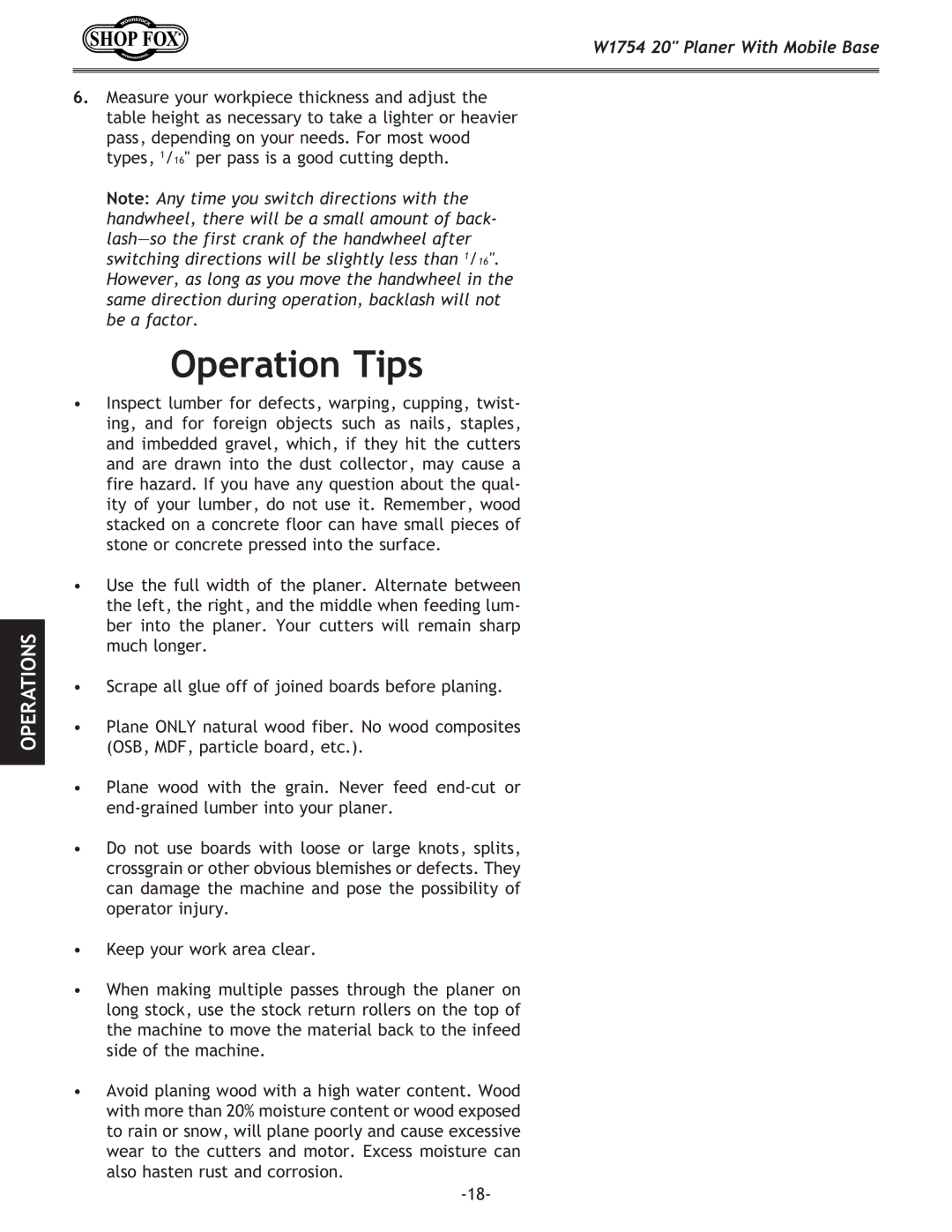
OPERATIONS
W1754 20" Planer With Mobile Base
6.Measure your workpiece thickness and adjust the table height as necessary to take a lighter or heavier pass, depending on your needs. For most wood types, 1/16" per pass is a good cutting depth.
Note: Any time you switch directions with the handwheel, there will be a small amount of back-
Operation Tips
•Inspect lumber for defects, warping, cupping, twist- ing, and for foreign objects such as nails, staples, and imbedded gravel, which, if they hit the cutters and are drawn into the dust collector, may cause a fire hazard. If you have any question about the qual- ity of your lumber, do not use it. Remember, wood stacked on a concrete floor can have small pieces of stone or concrete pressed into the surface.
•Use the full width of the planer. Alternate between the left, the right, and the middle when feeding lum- ber into the planer. Your cutters will remain sharp much longer.
•Scrape all glue off of joined boards before planing.
•Plane ONLY natural wood fiber. No wood composites (OSB, MDF, particle board, etc.).
•Plane wood with the grain. Never feed
•Do not use boards with loose or large knots, splits, crossgrain or other obvious blemishes or defects. They can damage the machine and pose the possibility of operator injury.
•Keep your work area clear.
•When making multiple passes through the planer on long stock, use the stock return rollers on the top of the machine to move the material back to the infeed side of the machine.
•Avoid planing wood with a high water content. Wood with more than 20% moisture content or wood exposed to rain or snow, will plane poorly and cause excessive wear to the cutters and motor. Excess moisture can also hasten rust and corrosion.
